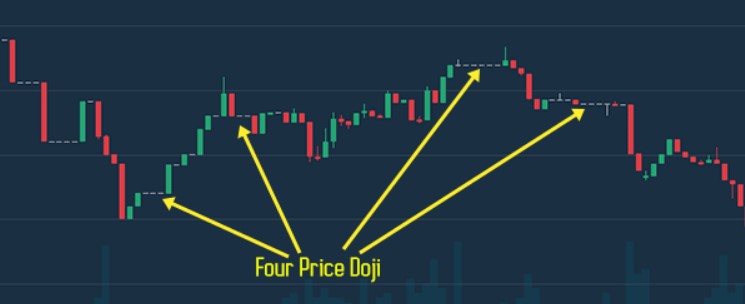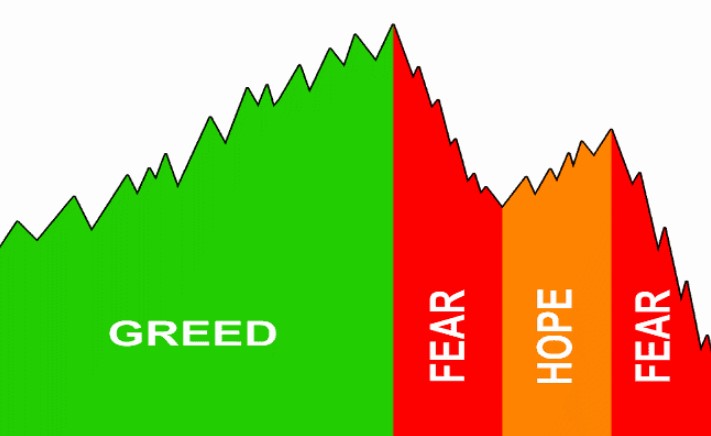
GBP’s Share of Global Reserves is on the Rise
Statistics from the International Monetary Fund (IMF) suggest that the Pound Sterling was one of the most significant beneficiaries of a waning dominance of the US Dollar in central bank foreign currency reserves in the last quarter of last year, according to new data. However, according to the agency, the mix may shift once the numbers for the first quarter of 2022 are released.
According to the Bank of International Settlements' most recent Composition of Foreign Exchange Reserves report, central banks increased their currency reserves in the fourth quarter of 2021, increasing the total value of worldwide central bank reserves by nearly 0.8 percent to slightly more than USD 12.04 trillion.
Despite the fact that the whole basket has grown, the dollar's share of the total has decreased to 58.79 percent from 59.19 percent in the previous three months. As a proportion of the population, this is a new all-time low.
Following the release of the IMF numbers, HSBC's FX Strategy Unit said that "the RMB and the pound both experienced increases of 0.1 percentage points, while smaller currencies such as the AUD, CAD, and CHF each gained 0.3 percentage points." There is nothing in the data that indicates a significant change in central bank reserve preferences, with the caveat that the data is based on the time before sanctions were imposed on the Russian central bank.
According to HSBC, this has sparked a frenzy of discussion concerning the USD's current position and the possibility of "de-dollarization."
When evaluated in terms of dollars rather than as a percentage of the larger basket, the Canadian Dollar had the fastest gain, but holdings of the pound sterling, the Swiss franc, and the Chinese renminbi also increased.
Nevertheless, changes in the relative value of any fiat currency compared to the greenback would have had an impact on the pecking order in the fourth quarter of the year 21. The performance of the domestic government bond markets would also have had a role in determining the outcome.
'That is not to imply that diversification of central bank reserves is not important,' says the author. HSBC was also included. 'Rather, it indicates a higher rate of change that will have an impact on the overall trend for forex traders.'
A DIFFERENT PICTURE MAY BE FORMING FOR Q1
While the United States dollar's proportion of global reserves shrank marginally last quarter, to the advantage of smaller currencies, the basket mix of currencies in the IMF's Q1-22 report, which will be released in June, might be considerably different.
To what degree things will be different in the future will depend on how much money European central bankers sold in late February and early March, when the financial effect of Russia's invasion of Ukraine was at its most acute.
In light of the fact that Japan's Yen, the European Union's Euro, the US dollar, the Chinese Yuan, and the British pound account for the vast majority of reserves, it's a safe bet that any first quarter selling would have been concentrated on these currencies, resulting in their respective shares of the basket falling during the period.
'Even after accounting for value adjustments, APAC forex reserves have decreased in recent months,' according to an analyst report from TD Securities' Currency Strategy unit. The growing pressure on Asian forex traders as markets price in higher US interest rates is highlighted by this development. Considering the predicted fall in current account positions as a result of increasing energy prices and smaller portfolio inflows, it's possible that the loss in the region's forex reserves will continue to worsen.
The International Monetary Fund's statistics for the first half of 2012 will be released on the final day of the second quarter, and the mix of indicators may be changed as a result of Russia's invasion of Ukraine on February 24. Central banks were forced to sell a portion of their reserves in order to reinforce support for their own currencies as a result of severe sanctions imposed on the country's financial sector.
Several times, the Narodowy Bank Polski said, its USD 160 billion contingency had been spent in an attempt to keep the Zloty stable in Poland. The bank said that it also want to assist the central bank and currency of Ukraine.
A number of commentators have speculated that a block on Central Bank of Russia assets by G7 nations may have encouraged some third-party central banks to sell some of their large stockpile of greenbacks in response to the asset freeze. That point of view overlooks the reality that most nations with significant reserve currencies participated in the sanctions as well.
'As the globe moves toward a more multipolar global financial and monetary system, the slow erosion of the Dollar in central bank reserves may continue. Because of this, the process will be lengthy, and for the time being there is no apparent alternative to the US dollar,' according to HSBC.
BOND YIELD DIFFERENTIALS MAY BE AN INDICATOR OF THINGS TO COME
Additionally, the Pound's recent association to bond yield differentials should be taken into consideration, particularly in light of a modest change in Bank of England (BoE) policy that some experts have seen. It might have implications for the future for other currencies, especially the US dollar.
The pound climbed against a number of G10 majors in the first session of this new week (Wednesday, April 4th), but by mid-week it had continued to suffer losses against all save the Franc and the Yen over the preceding thirty days. A shift in the Bank of England's policy signals was seen to be the deciding factor in those reductions.
According to a March warning from Threadneedle Street, market expectations for the Bank Rate had risen to levels that the UK economy could not maintain.
According to the Financial Times, Deputy Governor Sir Jon Cunliffe said that the central bank's economic outlook, which is planned for release in May, would most likely show inflation falling even further below goal.
'A lot will depend on how the Ukraine situation plays out and how sanctions may be implemented,' says the author. Things seem to be intensifying and prolonging the inflationary increase, which will further squeeze family earnings. The ensuing drop in demand as a result of weaker company investment and lower family spending will most certainly be bigger than we anticipated in February', says the report.
The Federal Reserve cannot do much, in terms of monetary policy, to alleviate economic pressures on price and cost that are created externally. Central banks are similarly constrained in their ability to react in a way that mitigates the consequent squeeze on family earnings. What we can do is take efforts to ensure that, when the current pressures subside, inflation returns to its objective of two percent.'
Foreign exchange traders should pay close attention to the impact of those factors on the yields on UK government bonds, in part because sterling has been rising and falling in tandem with differentials in bond yields between the United Kingdom and countries of some counterpart currencies over the past few weeks.






